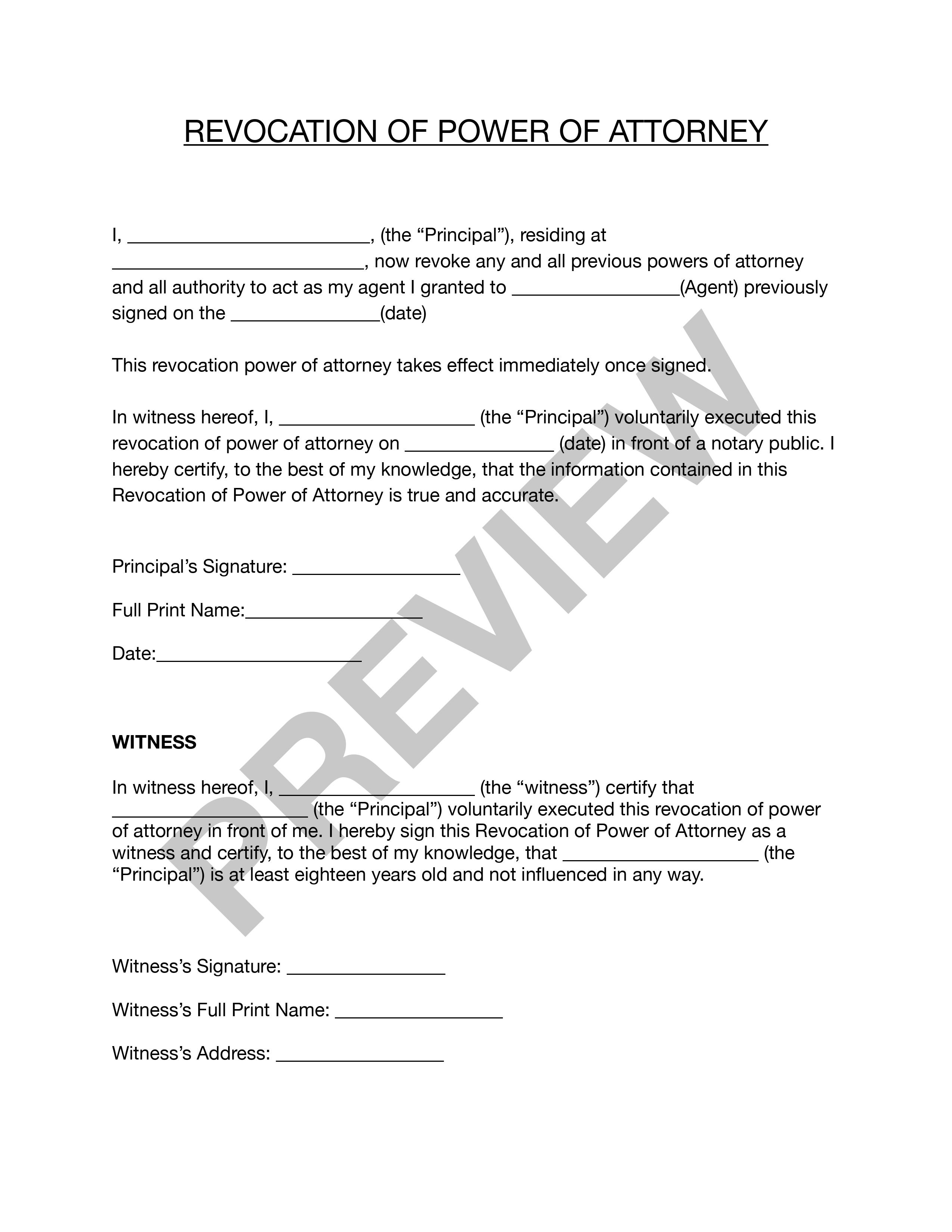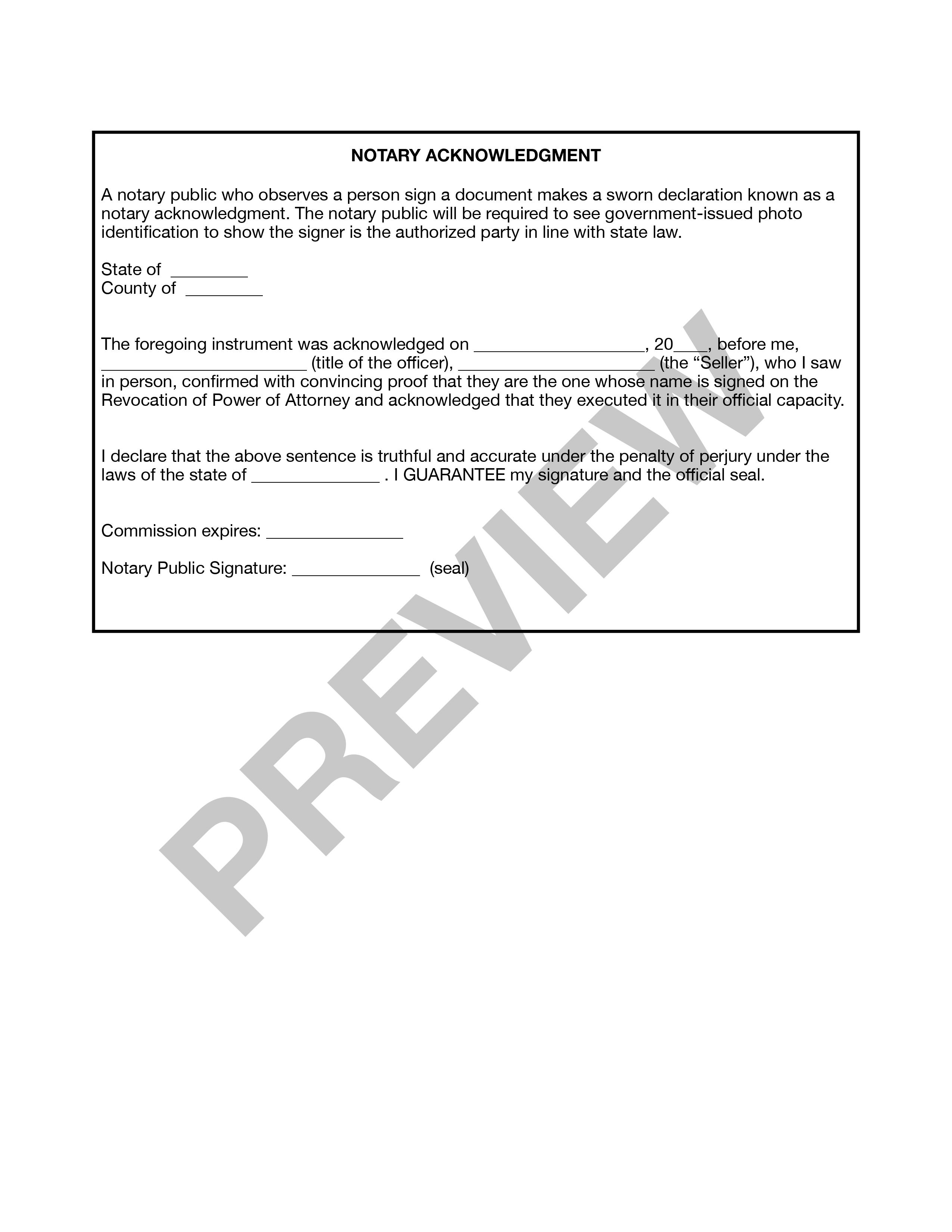Revocation of Power of Attorney
Get Started
Effective Date
Principal Information
The "principal" refers to the person who is appointing an agent to act on their behalf.Agent Information
The Agent (also referred to as the attorney-in-fact) is the person who is given the authority to act on behalf of the principal.Witnesses
First Witness (You can fill later)
Second Witness (You can fill later)
Notary Acknowledgment
Frequently Asked Questions
You should specify in the document which state's laws will govern the revocation. This will typically be the state where the original power of attorney was executed.
A revocation of power of attorney is a legal document that cancels or terminates a previously granted power of attorney. A power of attorney is a legal document that allows an individual or entity (the "agent" or "attorney-in-fact") to act on behalf of another person (the "principal") in various matters, such as financial, legal, or medical affairs.
If you are revoking a previous power of attorney, you need to provide the original date of that power of attorney on the revocation document. In this case, you should enter the actual date when the original power of attorney was executed or signed.
The type of revocation you should choose will depend on the type of power of attorney you previously granted.
If the power of attorney granted authority over medical decisions, then you should choose a medical power of attorney revocation form.
If the power of attorney granted authority over financial matters, then you should choose a financial power of attorney revocation form.
If the power of attorney granted authority over the care of a child, then you should choose a child care power of attorney revocation form.
The principal is the person who creates the document and previously authorized another person to act on their behalf. The principal is the individual who granted the authority to the agent to make decisions for them if they become incapacitated or unable to make decisions for themselves.
The agent, also known as the attorney-in-fact, is the person who was granted power of attorney in the original document. The agent, is the individual who was authorized to act on behalf of the person who granted the power of attorney. The agent was appointed by the principal to make financial decisions for them if they become incapacitated or unable to make decisions for themselves.
The number of witnesses required on a power of attorney revocation document can vary depending on the state or jurisdiction in which you are located and the specific requirements of the document you are using.
In general, most states may require two witnesses to witness the signing of a power of attorney revocation. In some cases, a notary public may also be required to witness the signing of the revocation document.
A notary acknowledement is a legal certification by a notary public that a person has signed a document in their presence and that the signature is genuine. The notary acknowledgment provides a level of assurance that the document is authentic and can be relied upon in legal proceedings.
To obtain a notary acknowledgment, the document signer must appear before the notary public, show proper identification, and sign the document in the notary's presence. The notary then affixes their official seal or stamp to the document and signs it to indicate that they witnessed the signature.
In some states in the United States, notarization of a Power of Attorney is required, while in others it is not. However, even if notarization is not required, it can be a good idea to have the document notarized, as it can provide additional evidence of the validity of the document in case of a dispute.




